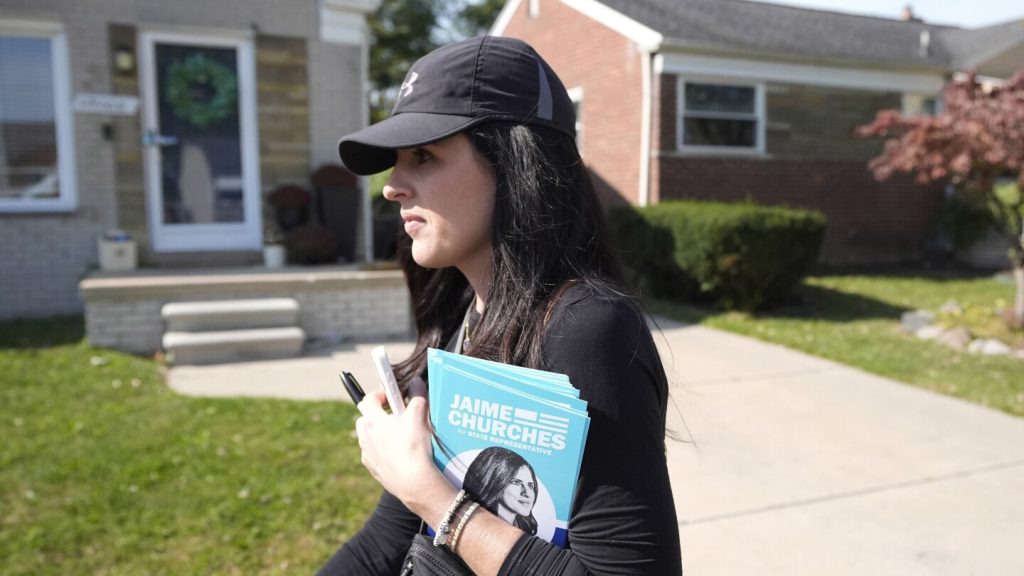Michigan Democrats face a crucial test in maintaining their foothold on state government two years after a significant sweep in the 2022 midterms. With control of both chambers of the Legislature and the governor’s office, Democrats could potentially lose their slim majority in the state House, hindering Governor Gretchen Whitmer’s ability to enact her priorities in the final two years of her term. Michigan is one of several states where the political balance could flip, with both parties targeting key states like Arizona, Minnesota, New Hampshire, Pennsylvania, and Wisconsin.
Reproductive rights and economic concerns are at the forefront of the campaign for both Democrats and Republicans. Democrats are focusing on protecting reproductive rights, even though abortion access is guaranteed in the state’s constitution, while Republicans are emphasizing that Democratic control has negatively impacted citizens’ pocketbooks and public safety in both Michigan and Washington. Republican candidates believe it is crucial to bring things back under control in state government, as stated by Bill G. Schuette, chair of the Michigan House Republican Campaign Committee.
In the Downriver area, Democratic incumbent Jamie Churches is running for a second term in the state House against Republican Rylee Linting. Churches, a former elementary school teacher, is focusing on reproductive rights and infrastructure in her campaign, while Linting is running on a message of small government and promoting conservative ideals in education. The candidates are looking to distinguish themselves by addressing local issues and offering fresh perspectives to voters in the district composed of union workers and middle-class earners.
The upcoming election in Michigan is crucial for both parties, with the turnout likely to be influenced by the presidential election. A citizen-led ballot initiative to protect abortion access helped deliver Democratic victories in the midterms, and a similar impact is expected on the competitive Downriver races. Groups aligned with Democrats and Republicans have been investing substantial amounts of money in state legislative battles, showing the significance of these races in determining the political landscape in Michigan and other key states.
In Wisconsin, Democrats are hoping to regain control of the Assembly for the first time since 2011, while Republicans aim to make gains in the Senate. In neighboring Minnesota, a special election will determine party control in the Senate, which is currently tied, while Republicans need only four more seats to take control of the state House. New Hampshire’s closely divided legislature reflects the national trend of fluctuating control, with Republicans having a slight edge in the Senate and a narrow majority in the House.
Governor Gretchen Whitmer emphasized the importance of down-ballot races, stating that the elected officials in the Legislature have a profound impact on people’s daily lives. While the presidential election may garner more attention, Whitmer highlights the significance of state legislative races in shaping policies and decisions that affect communities. As Michigan Democrats and Republicans face off in a critical election, the outcome will determine the direction of the state’s government and its impact on residents’ lives.


